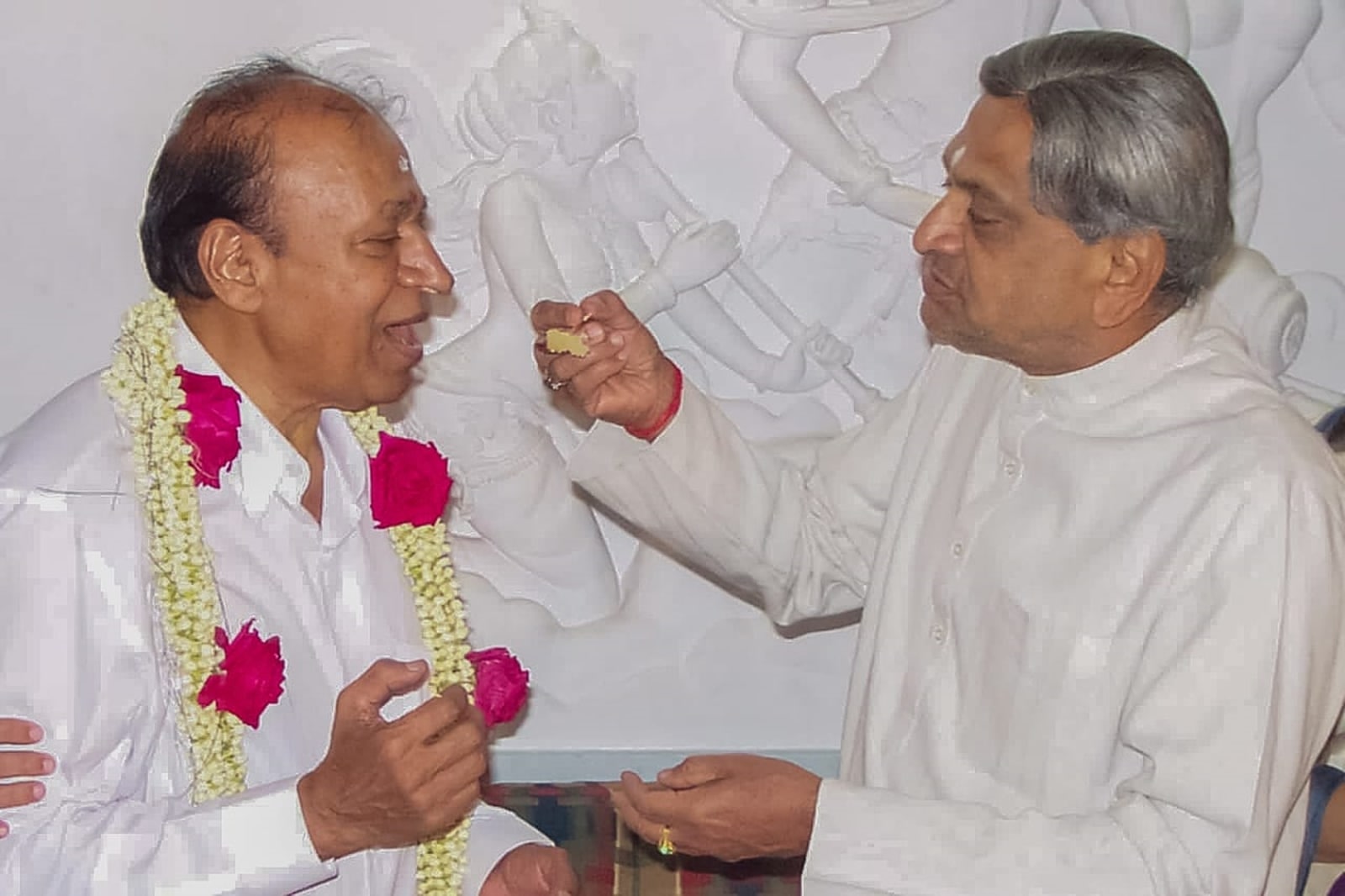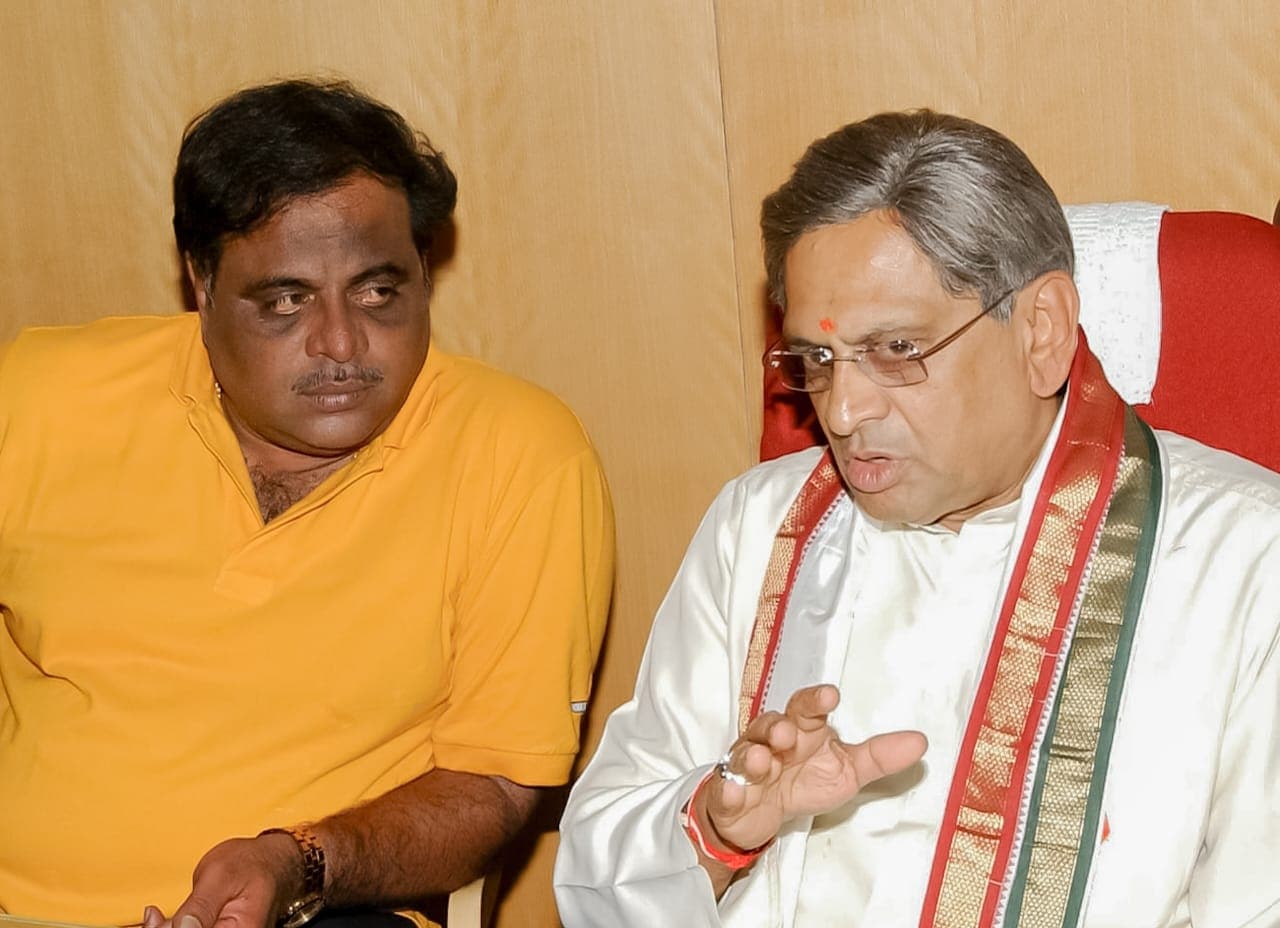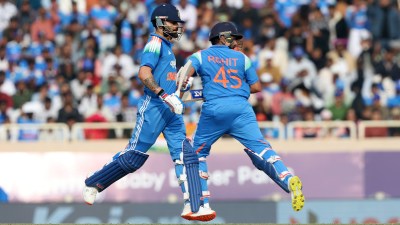S M Krishna, the Minister of External Affairs between June 2009 and October 2012, was brought to the job in the second term of the UPA because of his wealth of experience. Krishna, credited with creating world-class infrastructure in Bengaluru during his stint as Karnataka Chief Minister, passed away on Tuesday at 92.
“I got the call in 2009 from the PM (Manmohan Singh) when I was going out to play tennis. I was in Bangalore when it happened,” he told me later.

However, he started his innings with a bumpy ride. After The Indian Express wrote about his stay at a five-star hotel for three months amid the Congress’s austerity drive, he, along with then MoS (External Affairs) Shashi Tharoor, was publicly asked to vacate the hotel by his predecessor and then Finance Minister Pranab Mukherjee.
Krishna was an old-school politician who did not hold any grudge and never brought this up in the years that I covered his office and the ministry. Over the years, I would meet him for stories and we would end up talking about books. I would find that he would invariably be reading the latest books on geopolitics.
 Former Karnataka CM S M Krishna with Kannada matinee idol Dr Rajkumar. (Express archive)
Former Karnataka CM S M Krishna with Kannada matinee idol Dr Rajkumar. (Express archive)
His calm and composed style was something his officials and fellow foreign ministers would compliment him on as he navigated the foreign policy bureaucracy in active consultation with Prime Minister Manmohan Singh. At 77, he was one of the oldest members of the Cabinet at that time — he made 83 overseas trips as India’s foreign minister till he hung up his boots at 80.
As his age caught up with him, he made a gaffe many would later remember him for. At a United Nations meeting in 2011, Krishna read the speech of the Portuguese Foreign Minister for more than three minutes before Hardeep Singh Puri, the current Petroleum Minister and then India’s Permanent Representative at the UN in New York, interrupted him.
Dialogue with Pakistan
In the years after the Mumbai 26/11 attacks, Krishna took up the challenging task of engaging with Pakistan.
Story continues below this ad
After a false start in the India-Pakistan relationship — following a spat with the then foreign minister of Pakistan — the External Affairs Minister worked in tandem with the Prime Minister’s Office to resume the dialogue process between the two sides.
As a result, the Foreign Secretaries of the two countries met in Thimphu, Bhutan, on the sidelines of SAARC and decided to start the dialogue on all outstanding issues. Krishna followed PM Singh’s brief in toto and developed a strong rapport with Pakistan Foreign Minister Hina Rabbani Khar. He travelled to Pakistan in September 2012 and met Shahbaz Sharif in Lahore apart from the top leadership in Islamabad.
However, he was criticised for not defending Home Secretary G K Pillai in Islamabad at a joint press conference with Pakistan Foreign Minister Shah Mahmood Qureshi when Pillai was equated with Lashkar-e-Toiba co-founder Hafiz Saeed.
 S M Krishna with Kannada actor-politician Ambareesh. (Express archive)
S M Krishna with Kannada actor-politician Ambareesh. (Express archive)
As New Delhi ratcheted up its campaign for the UNSC non-permanent membership in 2010, Krishna worked the phones and spoke as well as met foreign ministers and interlocutors from more than 100 countries. In the end, India won the UNSC non-permanent seat as it got 187 out of 192 votes.
Story continues below this ad
Krishna engaged and met as many as 89 dignitaries in 2010-11 and the high point was the visit to India in 2010 by the heads of state or government of all the P-5 countries: US President Barack Obama, Russian President Vladimir Putin, Chinese Premier Wen Jiabao, French President Nicolas Sarkozy, and British PM David Cameron. It was a rare feat and the afterglow of the Indo-US nuclear deal and its impact on India’s global standing.
Rapport with Hillary Clinton, Hina Rabbani Khar
Krishna got along quite well with US Secretary of State Hillary Clinton, with whom he co-chaired three rounds of the India-US strategic dialogue. He was also in constant touch with US officials and was key in getting Washington to agree to give access to David Coleman Headley, a terror suspect in the 26/11 case who is still in the US.
Krishna also developed a strong rapport with his Iranian counterpart Manouchehr Mottaki and was able to see that India-Iran relations were not affected by India’s stance on Tehran’s nuclear programme.
When Krishna quit, he mentioned Hina Rabbani Khar twice and talked fondly about his rapport with her. “I had a good understanding with Hina Rabbani Khar and (Chinese Foreign minister) Yang Jiechi,” Krishna said, also mentioning his personal equations with Brazil’s Foreign Minister Antonio de Aguiar Patriota and South Africa’s Maite Nkoana-Mashabane.
Story continues below this ad
In 2011, as the Arab spring swept through West Asia and North Africa, in Egypt and then in Libya, the MEA under his charge and in coordination with other ministries assisted Indians in getting out of those two countries. The Libya evacuation operation was billed as the largest one after Kuwait in 1991 as 16,000 Indian nationals were brought back home in special flights.
As foreign minister, Krishna took up consular issues of Indians in distress overseas and sometimes made it his mission, often overlooking facts in his zeal. His high-decibel rhetoric on the incidents of violence against students in Australia — some racist, some were just isolated incidents — queered the India-Australia ties back then. Krishna also took up the case of an Indian couple in Norway for their child’s custody but it turned out to be one of marital discord.
As someone who needed prompting during meetings and even while answering questions in Parliament, Krishna left a poor impression as a Cabinet minister holding the External Affairs Minister’s portfolio.
Once he misunderstood a question about a Pakistani national lodged in an Indian jail and answered that he would take up the matter with the Pakistan government to ensure the prisoner’s release. A stunned Rajya Sabha had to remind him that the person concerned was in an Indian jail.
Story continues below this ad
A success and a graceful exit
But despite his gaffes, if there was one thing that Krishna accomplished and used his IT expertise from his Bengaluru days was the implementation of the Passport Seva project that cut down the red tape in issuing passports and eased the number of documents and time. He outsourced it to the Tatas. The pilot project began in Bengaluru and was expanded to the entire country. This was a success story that successive foreign ministers and governments have built on.
When Krishna was asked to step down in October 2012, he did so gracefully. At the time in his Thyagaraja Road residence, Krishna said that “senior citizens should make way” in ministerial positions in tune with the young demographic profile of the country. When I asked him if he would recommend an age limit for Union Cabinet ministers, Krishna laughed and said, “I can talk about myself, cannot talk about others.”



 Former Karnataka CM S M Krishna with Kannada matinee idol Dr Rajkumar. (Express archive)
Former Karnataka CM S M Krishna with Kannada matinee idol Dr Rajkumar. (Express archive) S M Krishna with Kannada actor-politician Ambareesh. (Express archive)
S M Krishna with Kannada actor-politician Ambareesh. (Express archive)





























